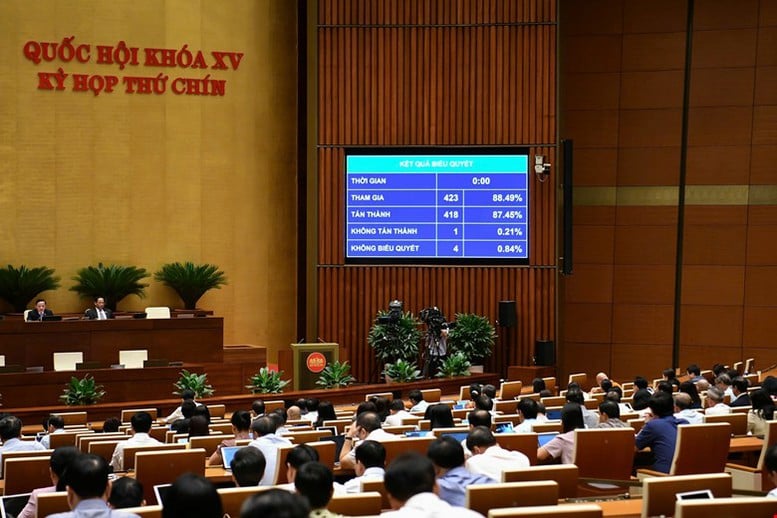
The National Assembly voted to pass the Law on Cadres and Civil Servants (amended)
On the morning of June 24, with 418/423 delegates in favor, the National Assembly officially passed the Law on Cadres and Civil Servants (amended).
This is an important concrete step to effectively put the Party's major policies and orientations on personnel work and civil service regime into practice, contributing to building a modern, professional Vietnamese civil service that operates for the country's development and serves the people.
Building a unified and interconnected public service from the central to the communal level
Before the National Assembly passed it, Minister of Home Affairs Pham Thi Thanh Tra presented a report on receiving, revising and perfecting the draft Law.
During the drafting and consultation process, 126 National Assembly delegates spoke in groups and halls, along with 12 written opinions, the majority of whom highly agreed with the content of the draft.
Incorporating these opinions, the draft Law was revised to 7 chapters and 45 articles (8 articles less than the draft previously submitted to the National Assembly), demonstrating innovative thinking and creating a synchronous legal corridor for civil servant management in a dynamic, transparent and effective direction.
According to Minister Pham Thi Thanh Tra, one of the important contents is that the Law has completed regulations to implement the policy of building a unified, interconnected, and synchronous civil service from the central to the communal level, without distinguishing between communal and provincial officials and civil servants.
The mechanism for managing and using cadres and civil servants is regulated in a transparent and effective manner, in accordance with the requirements of administrative reform. The Law has supplemented and completed regulations to transform the method of managing cadres and civil servants according to job positions, taking job positions as the center, on the basis of the requirements of job positions and results and products of performing tasks to recruit, arrange, use, evaluate, train, plan, and appoint cadres and civil servants.
Sign contracts with businessmen and experts to perform certain leadership and management tasks.
Another notable new point is that the Law perfects the mechanism for attracting high-quality human resources and policies for talented people in public service to institutionalize Resolutions No. 57-NQ/TW dated December 22, 2024, Resolution 66-NQ/TW dated April 30, 2025 and Resolution No. 68-NQ/TW dated May 4, 2025 of the Politburo .
Accordingly, the policy regulations apply to two groups of subjects, including: The group of subjects attracted to the public sector applies to high-quality human resources and the group of subjects who are talented people in public service activities.
3 forms of attracting high-quality human resources outside the public sector, including: Accepting civil servants; Signing contracts with typical and excellent businessmen, lawyers, good lawyers, experts, scientists to perform one or several tasks of a leadership or management position; Signing contracts with high-quality human resources to perform one or several professional and technical tasks.
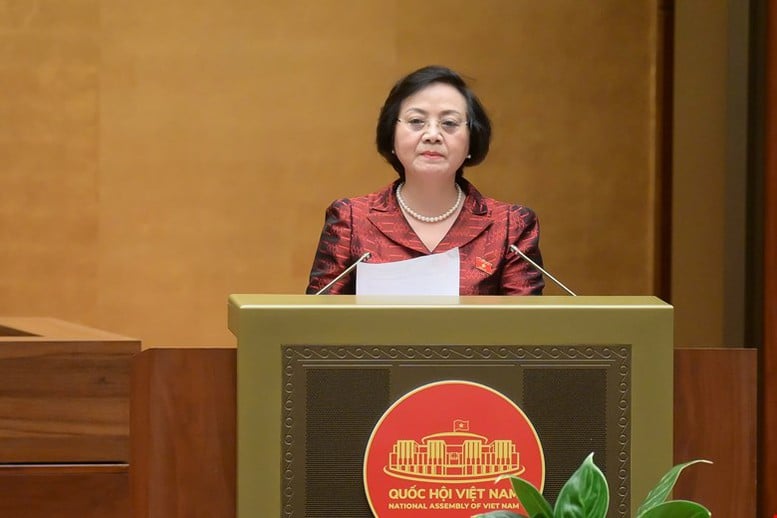
Minister of Home Affairs Pham Thi Thanh Tra presented the Report on receiving, revising and completing the draft Law on Cadres and Civil Servants (amended).
This revised law devotes much content to innovation in civil servant evaluation and reform of the civil service regime.
Accordingly, the draft law has revised and supplemented regulations on the obligations and rights of officials and civil servants to institutionalize the breakthrough Resolutions that are affirmed as the "Four Pillars" of national development, including supplementing regulations on the responsibility of leaders in cutting administrative procedures related to people and businesses; at the same time, reviewing related contents to ensure comprehensiveness and consistency in the draft Law; conditions for performing tasks...
Adjust regulations on principles and conditions for registering for civil servant recruitment and recruitment methods and authorities to innovate civil servant recruitment in the direction that selected candidates must immediately meet the requirements of the job position, and after being recruited, they will be placed in the corresponding civil servant rank; simplify administrative procedures.
Supplement and adjust regulations on job positions and civil servant ranks to attract high-quality human resources from the private sector, encourage civil servants to develop in a professional and technical path without necessarily being appointed to leadership and management positions and titles.
In particular, revise and complete the contents on civil servant evaluation, clarifying the principles, authority, content, and methods of evaluation and classification of civil servant quality based on regular, continuous, multi-dimensional, and quantitative monitoring and evaluation using specific criteria associated with progress, quantity, and quality of results and products according to job positions; use evaluation results to implement rewards, additional income regimes, bonuses, or consider assigning to lower job positions or dismissing people who do not meet job requirements from the apparatus.
Adjust and supplement the contents on training and fostering according to job positions; rewards, disciplinary actions, authority to manage cadres and civil servants, promote reform of the civil service regime, application of science, technology, and digital transformation in civil service activities.
To ensure continuity and suitability with practice, the Law clearly stipulates transition mechanisms. Accordingly, commune-level cadres and civil servants under the provisions of the current Law on Cadres and Civil Servants will be converted into cadres and civil servants under the new provisions of this Law if they meet the standards and conditions on training level without requirements on working time, standards and conditions of civil servant ranks.
Those who are currently on probation shall terminate their probation and be placed in a grade corresponding to their job position from the effective date of this Law.
Supplementing regulations on transitional time for completing job placement and corresponding rank for civil servants recruited before the effective date of this Law.
The National Assembly's passage of the Law on Cadres and Civil Servants (amended) is a testament to the high political determination in building a modern, honest, streamlined, and effectively operating cadre and civil servant team.
The Law will be an important legal corridor to effectively implement the Party's policies, especially recent Central Resolutions on administrative reform, organizational innovation, and talent recruitment; at the same time, it will contribute to improving the quality of service to the people and businesses, promoting rapid and sustainable socio-economic development.
Thu Giang
Source: https://baochinhphu.vn/quoc-hoi-thong-qua-luat-can-bo-cong-chuc-sua-doi-buoc-tien-xay-dung-nen-cong-vu-hien-dai-chuyen-nghiep-10225062409434774.htm





![[Photo] General Secretary To Lam meets with the Group of Young National Assembly Deputies](https://vphoto.vietnam.vn/thumb/1200x675/vietnam/resource/IMAGE/2025/6/24/618b5c3b8c92431686f2217f61dbf4f6)
![[Photo] The 9th Party Congress of the National Political Publishing House Truth](https://vphoto.vietnam.vn/thumb/1200x675/vietnam/resource/IMAGE/2025/6/24/ade0561f18954dd1a6a491bdadfa84f1)
![[Photo] Close-up of modernized Thu Thiem, connecting new life with District 1](https://vphoto.vietnam.vn/thumb/1200x675/vietnam/resource/IMAGE/2025/6/24/d360fb27c6924b0087bf4f288c24b2f2)
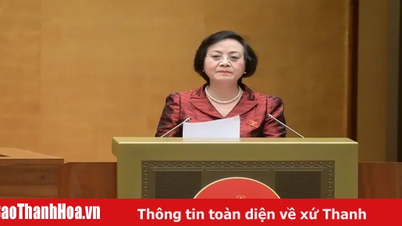

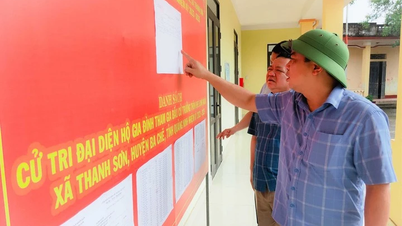



































































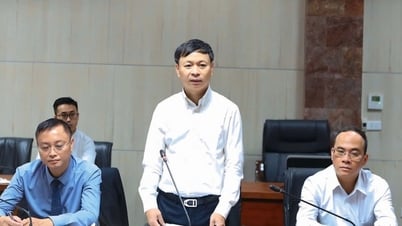

































Comment (0)